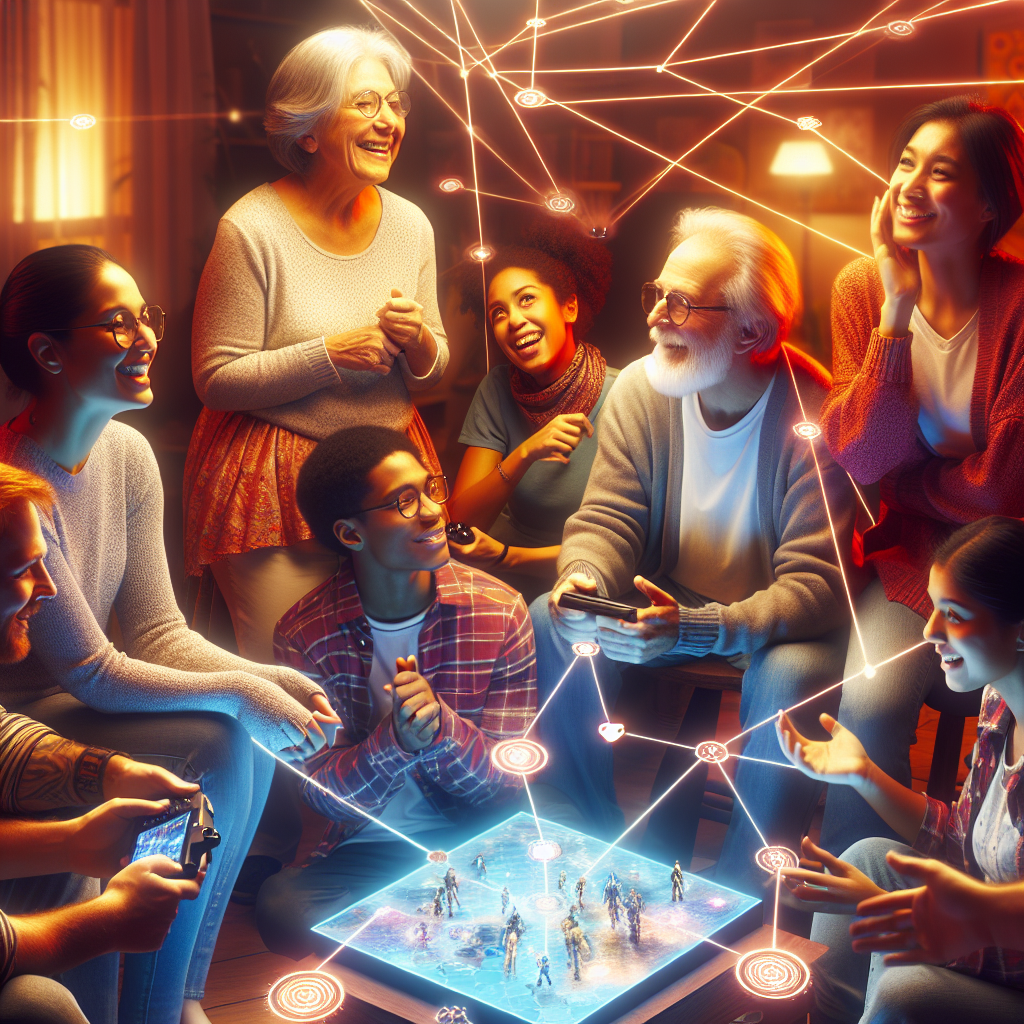Cultivating Connection: The Role of Gaming Communities in Fostering Friendships
In an increasingly digital world, where social interactions are often mediated by screens and devices, gaming communities have emerged as vibrant hubs of connection and camaraderie. The gaming landscape, once viewed purely as a solitary pastime, has evolved into a rich tapestry of interaction, collaboration, and friendship. This article explores how these communities cultivate connection, support personal relationships, and contribute to emotional well-being among players.
The Evolution of Gaming Communities
The trajectory of gaming has shifted remarkably since its inception. Early video games were often solitary experiences, but the rise of the internet in the late 1990s and early 2000s introduced multiplayer gaming and online forums. As technology advanced, gamers began to gather in virtual spaces, leading to the creation of diverse communities centered around specific games, genres, or platforms.
Today, online gaming not only allows players to engage with one another but also provides opportunities to communicate via voice chat, social media, and dedicated community platforms such as Discord and Reddit. These spaces foster interaction beyond gameplay, enabling players to share experiences, discuss strategies, and form lasting friendships.
Building Bridges Across Distances
One of the most significant advantages of gaming communities is their ability to connect people from diverse backgrounds and geographical locations. Players can team up with individuals from different countries and cultures, sharing experiences that transcend physical and social barriers. This international camaraderie broadens perspectives, encourages empathy, and often leads to lifelong friendships.
For many, gaming communities provide a sense of belonging that might be lacking in their offline lives. Players who may struggle with social anxiety or who live in isolated areas can find solace in these virtual environments, where they can interact at their own pace. The shared interests in gaming create a foundation for friendships that are often deeply rooted in mutual respect and shared experiences.
The Role of Cooperative Gameplay
Many gaming communities are built around cooperative gameplay, where teamwork and communication are essential for success. Games such as “World of Warcraft,” “Overwatch,” and “Fortnite” require players to strategize and work together, creating shared objectives that strengthen group bonds. These shared challenges foster collaboration and encourage players to support one another, both in-game and in their personal lives.
The sense of achievement derived from overcoming challenges together can result in strong friendships. Players often celebrate victories, console one another during defeats, and provide support during tough times. Such interactions can help players feel valued and understood, further enhancing their emotional well-being.
Navigating Conflict and Building Resilience
While gaming communities often promote connection and friendship, they are not devoid of conflict. Disagreements can arise over gameplay styles, personalities, or competition. However, navigating these conflicts can foster resilience and improve interpersonal skills. Learning to engage in constructive discussions, set boundaries, and exercise empathy is crucial both within gaming communities and in real-life situations.
Moreover, many gaming communities place an emphasis on inclusivity and respect, working to create environments that discourage toxicity and promote kindness. Initiatives such as anti-harassment policies or community guidelines are designed to foster safe spaces where players can engage in meaningful interactions without fear of hostility, ultimately leading to deeper connections.
The Longevity of Friendships
Friendships formed in gaming communities can be as robust and enduring as those cultivated in traditional settings. Whether through regular gaming sessions, community events, or even meet-ups at gaming conventions, players often seize opportunities to deepen their connections. These friendships can evolve beyond the screen, transcending the initial context of gaming and becoming integral to players’ lives.
For many, these bonds have a significant impact on their mental health and well-being. The support systems created within these communities contribute to feelings of happiness and belonging, which are crucial for emotional fulfillment. Players often report that their gaming friends are just as important, if not more so, than their offline friendships.
Conclusion: The Power of Connection
In an era where genuine social connection can sometimes feel elusive, gaming communities stand out as unique social ecosystems that promote profound connections and friendships. They serve as platforms for collaboration, resilience, and shared experiences, making them vital spaces for fostering relationships in a digital age. As players continue to navigate the complexities of life, the friendships built within these communities often provide the support and understanding needed to thrive. Whether through shared victories or challenges, gaming communities play an essential role in cultivating connection, proving that friendship knows no boundaries—even in the virtual world.




